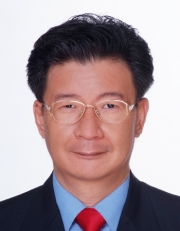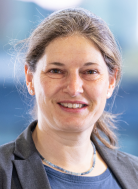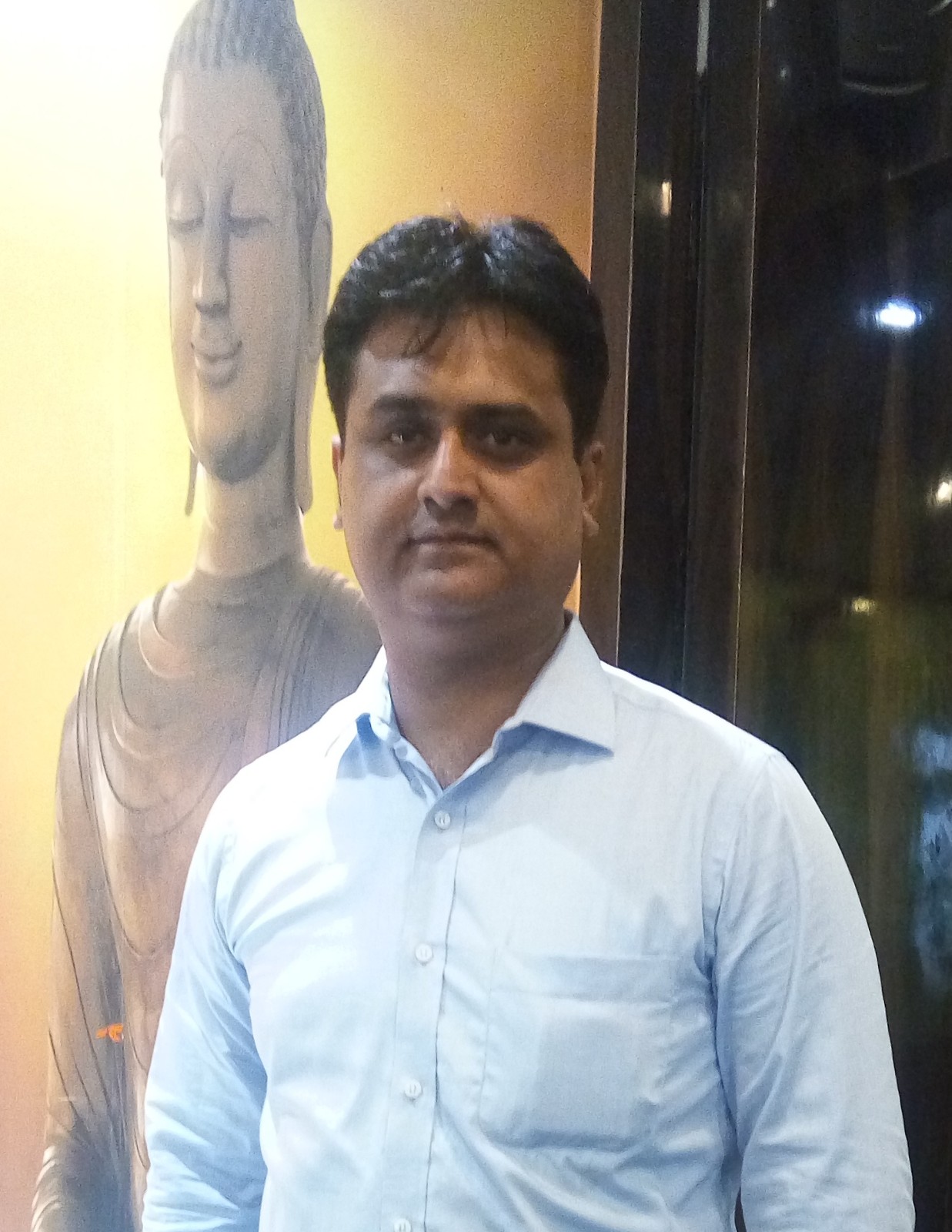Speakers 2022
Keynote Speaker Ⅰ

Prof. Lorenzo Pareschi
University of Ferrara, Italy
Speech Title: Stochastic Particle Methods for Global Optimization and Applications to Machine Learning
Abstract: Many applications in machine learning and artificial intelligence require the solution of global optimization problems in high dimension. For such optimization problems, gradient-based methods have been dominating. Nevertheless, gradient-based methods have problems dealing with functions that have large noise or that are non-differentiable. Gradient-free stochastic particle methods represent a viable alternative in such circumstances. Among these, Consensus based optimization (CBO) methods, thanks to their rigorous mathematical foundation, have attracted a lot of interest recently from the scientific community. Roughly speaking, they belong to the family of individual-based methods that are inspired by self-organized dynamics built on alignment and stochastic exploration. Together with their mathematical formulation we will discuss the relation to other metaheuristics like the well-known particle swarm optimization (PSO). We also consider recent extensions to the constrained and the multi-objective cases, in particular the situation where the optimization process is restricted to manifolds. Some applications to machine learning problems and rigorous results regarding the mean-field limit and the convergence of the methods to the global minimum are presented.
Bio: Lorenzo Pareschi is Professor of Numerical Analysis at the Department of Mathematics and Computer Science, University of Ferrara, Italy. He received his Ph.D. in Mathematics from the University of Bologna, Italy, and subsequently held visiting professorships at the Georgia Institute of Technology, Atlanta, USA, the University of Wisconsin-Madison, USA, the University of Orléans, France, and the University of Toulouse, France. He was awarded as Nelder Fellow at the Imperial College, London, UK, in 2015, and John von Neumann Professor at the Technical University of Munich, Germany, in 2019. He is currently member of the steering committee of the Italian Society for Industrial and Applied Mathematics (SIMAI), and member of the Committee for Applications and Interdisciplinary Relations (CAIR) of the European Mathematical Society (EMS). His research interests include multiscale modeling and numerical methods for phenomena described by nonlinear time-dependent partial differential equations. He served as associate editor for several international journals among which Multiscale Modeling and Simulation, and SIAM Journal on Scientific Computing. The results of his research activity are reported in more than 160 scientific publications and 5 books. More information can be found at his personal web page: http:/www.lorenzopareschi.it
Keynote Speaker Ⅱ

Prof.Xudong Jiang
IEEE Fellow
Nanyang Technological University
Speech Title: Towards Explainable AI: How Deep CNN Solves Problems of NN
Abstract: Discovering knowledge from data has many applications in various artificial intelligence (AI) systems. Machine learning from the data is a solution to find right information from the high dimensional data. It is thus not a surprise that learning-based approaches emerge in various AI applications. The powerfulness of machine learning was already proven 30 years ago in the boom of neural networks but its successful application to the real world is just in recent years after the deep convolutional neural networks (CNN) have been developed. This is because the machine learning alone can only solve problems in the training data but the system is designed for the unknown data outside of the training set. This gap can be bridged by regularization: human knowledge guidance or interference to the machine learning. This speech will analyze these concepts and ideas from traditional neural networks to the very hot deep CNN neural networks. It will answer the questions why the traditional neural networks fail to solve real world problems even after 30 years’ intensive research and development and how the deep CNN neural networks solve the problems of the traditional neural networks and now are very successful in solving various real world AI problems.
Bio: Xudong Jiang received the B.Eng. and M.Eng. from the University of Electronic Science and Technology of China (UESTC), and the Ph.D. degree from Helmut Schmidt University, Hamburg, Germany. From 1998 to 2004, he was with the Institute for Infocomm Research, A-Star, Singapore, as a Lead Scientist and the Head of the Biometrics Laboratory, where he developed a system that achieved the most efficiency and the second most accuracy at the International Fingerprint Verification Competition in 2000. He joined Nanyang Technological University (NTU), Singapore, as a Faculty Member, in 2004, and served as the Director of the Centre for Information Security from 2005 to 2011. Currently, he is a professor in NTU. Dr Jiang holds 7 patents and has authored over 200 papers with over 40 papers in the IEEE journals, including 6 papers in IEEE T-PAMI and 12 papers in IEEE T-IP. Three of his journal papers have been listed as published the top 1% highly cited papers in the academic field of Engineering by Essential Science Indicators. He also 12 papers in top conferences CVPR/ICCV/ECCV in the past 4 years since 2018. He served as IFS TC Member of the IEEE Signal Processing Society from 2015 to 2017, Associate Editor forn IEEE Sigal Processing Letter from 2014 to 2018 and Associate Editor for IEEE Transactions on Image Processing from 2016 to 2020. Dr Jiang is currently an IEEE Fellow and serves as Senior Area Editor for IEEE Transactions on Image Processing and Editor-in-Chief for IET Biometrics. His current research interests include image processing, pattern recognition, computer vision, machine learning, and biometrics.
Keynote Speaker Ⅲ

Prof. Sally McClean
Ulster University
SpeechTitle: Smart Process Modelling for improved Process Mining
Abstract: Huge volumes of heterogeneous data are increasingly being collected, stored and analyzed for improved understanding, prediction and efficiency of complex processes. Business processes from large organizations are diverse and complex, while healthcare process data are increasingly being modelled and analyzed to track the spread of devastating diseases, such as covid-19, and the management of patients in hospital and community settings. However, internal and external process factors can lead to uncertainty of outcomes, resulting, for example, from customer or patient journeys. Smart process analytics allows the users of such data and knowledge to achieve goals, through the use of different modelling and analytical techniques, thus facilitating the better understanding of such processes and prediction of outcomes of interest. Such approaches can typically improve understanding of process dynamics and facilitate timely predictions.
Bio: Sally McClean received her first degree in Mathematics from Oxford University, and then obtained a MSc in Mathematical Statistics and Operational Research from Cardiff University, followed by a PhD on Markov and semi-Markov models at Ulster University. She is currently Professor of Mathematics at Ulster University. Her main research interests are in Stochastic Modelling, Data Mining and Optimisation, particularly for Healthcare, and Computer Science, specifically Databases, Internet of Things, and Sensor Technology. Much of this work has focussed on patient modelling and pervasive technologies. She has been grantholder on over £13 million worth of funding, mainly from the EPSRC, Industry, the EU and charities. She has published over three hundred papers and was previously a recipient of Ulster University’s Senior Distinguished Research Fellowship.
Keynote Speaker IV

Prof. Barbara Hammer
Bielefeld University
Speech Title: Machine Learning in an Open Environment and its Challenges for Theoretical Modeling
Abstract: One of the main assumptions of classical machine learning is that data are generated by a stationary concept. This is often violated in practice if unexpected events happen, sensor drift is present, of models should be individualized for a specific user, for example. In such situations, a number of challenges occur: How to detect that drift occurs? How to adapt the model on the fly, given new data, without catastrophic forgetting? How to incorporate measures which can mediate suboptimal behavior?
In the talk, we will address three algorithmic challenges: flexible drift detection with minimum requirements, life-long model adaptation, and reject options. We will demonstrate the behavior of the algorithmic models in the context of medical applications and industry4.0, respectively.
Bio: Barbara Hammer is a full Professor for Machine Learning at the CITEC Cluster at Bielefeld University, Germany. She received her Ph.D. in Computer Science in 1999 and her venia legendi (permission to teach) in 2003, both from the University of Osnabrueck, Germany, where she was head of an independent research group on the topic 'Learning with Neural Methods on Structured Data'. In 2004, she accepted an offer for a professorship at Clausthal University of Technology, Germany, before moving to Bielefeld in 2010. Barbara's research interests cover theory and algorithms in machine learning and neural networks and their application for technical systems and the life sciences, including explainability, learning with drift, nonlinear dimensionality reduction, recursive models, and learning with non-standard data. Barbara has been chairing the IEEE CIS Technical Committee on Data Mining and Big Data Analytics, the IEEE CIS Technical Committee on Neural Networks, and the IEEE CIS Distinguished Lecturer Committee. She has been elected as member of the IEEE CIS Administrative Committee and the INNS Board. She is or has been an associate editor of the IEEE Computational Intelligence Magazine, the IEEE TNNLS, and IEEE TPAMI. Currently, large parties of her work focusses on explainable machine learning for spatial-temporal data in her role as a PI of the ERC Synergy Grant Water-Futures.
Keynote Speaker V

Prof. Manik Sharma
DAV University Jalandhar
Title: Remote Monitoring of Psychological Disorders Patients using Emerging Computing Technologies
Abstract: Remote patient monitoring is an innovative supervision approach in which a physician sitting far away from the patient can remotely monitor the patient's condition. There is a need to combine distinct emerging computing technologies like Machine Learning, Soft Computing, SIoT (Social Internet of Things), Fog Computing, and blockchain. The use of SIoT will help in collecting the data (physical and mental states) of remote patients. The use of bio-sensors and wearable devices assists in collecting the regular data (body temperature, electroencephalogram signals, finger temperature, heart rate, pupil diameter, galvanic skin response, and blood pressure) of these persons. After getting the required data, different pre-processing techniques will be applied to clean and normalize the data. The hybridization of Deep Learning (Deep-Neural Network, Deep-Belief Network, Convolutional-Neural Network), emerging nature-inspired computing (Crow Search Algorithm, Whale Optimization, Grey Wolf Optimizer, Dragonfly Algorithm, Butterfly Optimization, Genetic Algorithm, Harris Hawks Algorithm, etc.) and Fuzzy Logic (FL) techniques will be employed to devise an effective classification model for diagnosis of the mental and physical states of the psychological disordered patients. The use of Fog Computing techniques helps in getting and processing the local and nearby information in an expedited manner which will ultimately reduce the network latency and accelerate the data processing task close to the data originating site. Fuzzy logic will assist in handling the uncertainty in the data. The right agglomeration of SIoT, fog computing, and soft computing techniques will cope in finding global optimal efficiency with fast convergence speed. The privacy and security of the patient data will be tackled using blockchain.
Bio: Manik Sharma is an Assistant Professor in the Department of Computer Science and Applications, DAV University Jalandhar. He is MCA, UGC-NET qualified and has received his PhD degree in “Distributed Query Optimization” from IKG Punjab Technical University, Kapoorthala, India. Dr Sharma has more than 15 years of teaching and research experience. His research interests include Machine Learning, Optimization Techniques, Health Informatics and Smart Systems. The thrust area is to design a smart and innovative Decision Support System for the effective diagnosis and management of different behavioral and mental disorders. Dr Sharma authored/coauthored over 40 International Journal articles, Conference Proceedings, and Book Chapters.
He is an Editor-in-Chief of EAI Endorsed Transaction on Pervasive Health and Technology (Scopus Indexed) and Co-Editor-in-Chief of EAI Endorsed Transaction on Scalable Information System (ESCI indexed). Additionally, he is a part of editorial board of several reputed international journals including Soft Computing (Springer), Cluster Computing (Springer), and IEEE Access.
He is also serving as a reviewer for various international Journals including IEEE, Springer, Elsevier, MDPI, and SAGE publications. Moreover, he has been on program committees of over 100 international conferences as a member of International Program Committees, Technical Program Committees, and Advisory Committees of several academics conferences (United Kingdom, Singapore, Mauritius, Thailand, Vietnam, USA, Hong Kong, Canada, UAE, and India).
